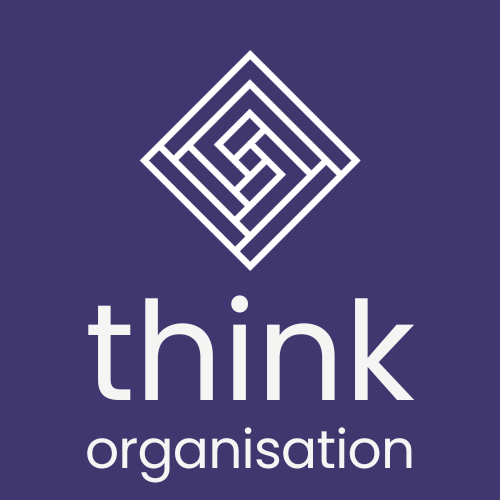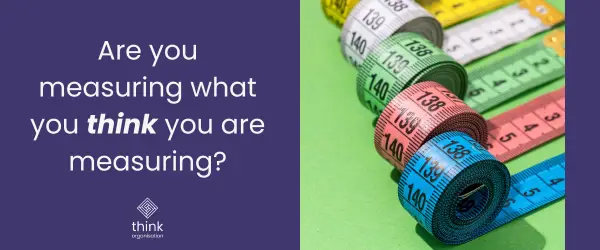Do you want to know more about psychometrics?
Do you want to get to know the members of your team faster and really understand each other?
Do you have conflict bubbling under some of the discussions in your team?
Are you concerned that as a leader you may not be getting the ‘true picture’ of what people think?
This is why you need to use psychometrics.
What are Psychometrics?
Psychometrics are tools which allow productive conversations to happen. They provide a language which empowers teams to have conversations about behaviours. Giving people insight into the ways people work, and importantly how people can work together.
In recent years many businesses have been turning to psychometrics to understand more about their employees. A psychometric is a quantitative tool used to measure psychological variables. Understanding the intelligence, personality traits, and mental health of employees is invaluable. However, there is an increasing number of people using psychometrics for the wrong purpose, or using them to make decisions that they were not intended for. For example, would you use a metric ruler to measure how much a person weighs? Or would you use a set of kitchen scales to measure how old someone is? This is what can happen with psychometrics.
Unfortunately, except for qualified Psychologists, many people only train in one or two psychometrics during their career. Investing significant sums in this training they (understandably) then use the test they have invested in to measure everything. The problem is, that many tests are useful for different situations.
For example, a test used in recruitment might be very different from one used as part of development. Measuring someone’s cognitive ability and trying to develop this is not ideal. Just as making recruitment decisions based on invalid or unreliable tests can lead to discrimination and tribunal claims. So what is the answer?
Here are Think Organisation’s top ten benefits to using psychometrics which will fast track the success of your teams, and therefore your organisation.
Top Ten Benefits of Psychometrics
Increased efficiency & effectiveness of teams
Psychometric tests are proven to improve team dynamics. They provide insights into individual team members’ strengths, weaknesses, and working styles, facilitating better team collaboration and communication.
Improved talent retention
Psychometrics ensure a good fit between employees and their roles and can help identify candidates whose personalities, skills and values align with company culture and job requirements. This reduces employee turnover rates, leading to increased stability and vastly reduced recruitment costs.
Targeted Training & Development
Psychometric assessments can identify specific areas where employees need development, allowing for tailored training & coaching programmes that address individual and team needs. In addition, understanding employees’ motivations and preferred working conditions can help managers create environments that maximise productivity and job satisfaction for all.
Conflict Resolution
Insights gained from psychometric testing can be used to mediate and resolve conflicts by understanding the root causes and dynamics, empowering employees to own their resolutions. Having a common language helps prevent further escalations.
Talent Succession Planning
Psychometrics accurately measure competencies, desired behaviours, and thought processes and are invaluable for identifying leadership potential. They can also help improve equality and inclusion and develop effective talent pipelines within organisations.
Increased employee engagement
Understanding what drives and motivates employees can lead to strategies that increase engagement, satisfaction, and overall morale. Being able to identify skills, attributes and motivation aids in creating psychologically safe environments where everyone is learning for their future.
Objective Decision-Making
Psychometric data provides an objective basis for various HR decisions, reducing biases and promoting fair treatment when the psychometric is grounded in valid, reliable representative data.
Customer Relations
Employees who understand their own and their colleagues’ psychometric profiles can improve interactions with customers, leading to better service and customer satisfaction.
Performance Improvement
Regular psychometric assessments can track progress and highlight areas for continuous improvement, aiding performance management for everyone in a team.
Innovation and Creativity
Diverse teams, assembled based on complementary psychometric profiles, can foster innovation and creativity through varied perspectives and problem-solving approaches. Humans have a bias for people who are similar to themselves due to evolution so psychometrics can ensure a team is created with all the competencies, thought processes and behaviours required.
They can also help to bring people in who have strengths that are needed but absent from the rest of the team, balancing the needs for all types of characteristics to strengthen the team.
Which psychometric will help us?
There are hundreds of psychometrics in the marketplace. Unfortunately many are not valid, reliable or accurate measures of the construct they claim to measure. A psychometric needs to be reliable and valid.:
Reliable: ensuring the results are consistent when repeated
Valid: ensuring the results measure accurately what they specify, at levels which are consistent and can be differentiated between individuals, teams and organisations.
The British Psychology Society provides reviews of psychometrics presented to them for assessment. However, it is important to read the details of the assessment as some tests score very low against their criteria. That said the criteria is a great checklist for understanding whether the test is measuring what it says it is measuring, in a format which does not discriminate against users – BPS Test Review Criteria.
It is vital psychometrics are used for the right purpose, and measure what they say. Hiring decisions, development decisions and people’s lives are affected by their results. It is also vital that the feedback given is inspirational and supportive to suit the needs of the individuals, teams and organisation.
If you want the highest quality service provision, we would recommend using someone who is trained in the BPS User Level A & B, which is an extensive training program covering ability and personality testing, as well as practical assessments on giving feedback to candidates.
What questions should I ask to select a psychometric provider?
At Think Organisation we use psychometric measurements to connect the observable with the unobservable.
We have compiled a list of questions to help you select the right provider – share a few details and get access to them for free:



